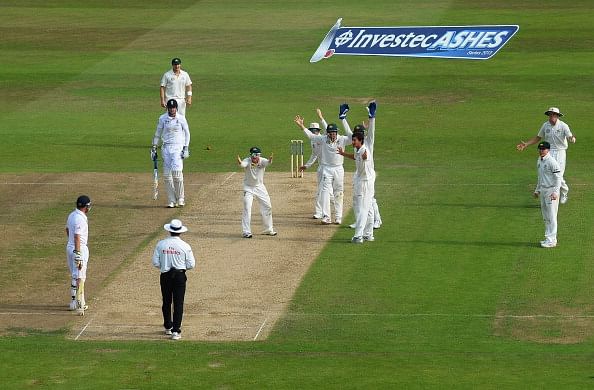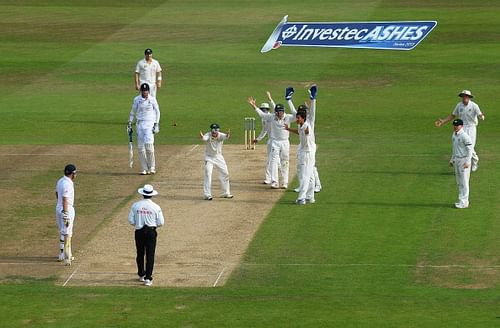
The Ashes 2013: Logically, the batsman need not walk

Stuart Broad’s case displays the double standards of morality in cricket
Sport is the closest we can come to war, without bloodshed. Sport reveals everything there is about a human being, it really does. How tattered your edges are and how frayed your nerves turn, become public knowledge when you play a sport in front of a million eyes.
When you play in the gentleman’s game, the expectations rise higher and you are expected to behave in a nobler fashion. But it is a strange game and media plays stranger games around it.
Stuart Broad nicked one ball that was caught at first slip in the first Ashes Test. Aleem Dar missed the edge, Australia missed the wicket and fans around the world missed the age-old ethics of ‘walking’.
To be fair, it feels nice to be in a world where a batsman walks, without waiting for the umpire’s finger. We have seen Adam Gilchrist doing it in a high-stakes game. We have seen Brian Lara virtually walking for leg before wicket appeals, as if in disdain, for missing out on the ball. But logically, the batsman doesn’t need to walk, even if he really respects the rules of cricket.
It is a game where the bowler is allowed to appeal; rather, he is mandated to. An umpire cannot rule a batsman out unless the bowler appeals. An umpire cannot ask for the third umpire’s review, even if he knows the batsman was not back in the crease during a run out, if there is no appeal.
The very nature of appealing brings an inconsistency of trial and error. A bowler can technically appeal for a caught-behind even when there was no edge; he/she can appeal for an LBW even when the ball pitches outside leg stump and even when the ball hits the pad after a big inside edge.
There is no hue and cry over it because ‘ethically’, and it is an oft-misused word, there is no way to prove that the bowler didn’t know he wasn’t supposed to appeal. But who are we kidding? Wicket-keepers know if there was really an edge in most cases and even then, appeal as vociferously and dramatically as if it were a child who thinks its helicopter toy can fly.
True, in recent times, Dinesh Ramdin was suspended for appealing after failing to catch the ball cleanly. However, that was more a jarring exception than a norm.
We don’t live in an ideal world. Footballers dive all the time to get an advantage. The point is, if there is someone who can throw ethics out of the window and stand his ground, it is the batsman.
The bowler can go back and bowl another delivery and hence should be more mindful of not appealing for something that isn’t fair. Yet he does. In such a world, a batsman who doesn’t get another chance need not walk; especially not if the fielding team has two review chances, which in most cases are used tactically like in gambling and not for the reason they ought to be used – to prevent howlers.
True, millions of viewers forgive fielders at square leg appealing for faint nicks which even the bowler cannot hear, and fielders at point appealing for LBW where the ball hits the thigh of the batsman. But strangely it’s hard to forgive a batsman who has nicked the ball and doesn’t walk. Probably that is why this is called the batsman’s game.
DRS has created a lot of controversy in the last two Tests, partially vindicating India’s stand for a long while. But there is a certain malarkey in the way analysts have written about demanding honesty from batsmen.
True, the Aussies have overdone it by asking for reviews even when they have genuinely edged the ball or have been struck plumb in front. That was the other extreme of desperation.
By and large, the DRS is not a perfect system and hence it can wreak havoc with your sense of desperation to hold on to the wicket. It is still an enigma and with a malfunctioning Hot Spot and an out-of-favour Snickometer, much needs to be improved.
At best, you could hope there is more consistency in the way umpires in the middle and the third umpire conspire to give a batsman the marching orders.
Once the errors in DRS are rectified, a batsman could only embarrass himself by not walking. But until then, I think, the batsman can stand his ground!